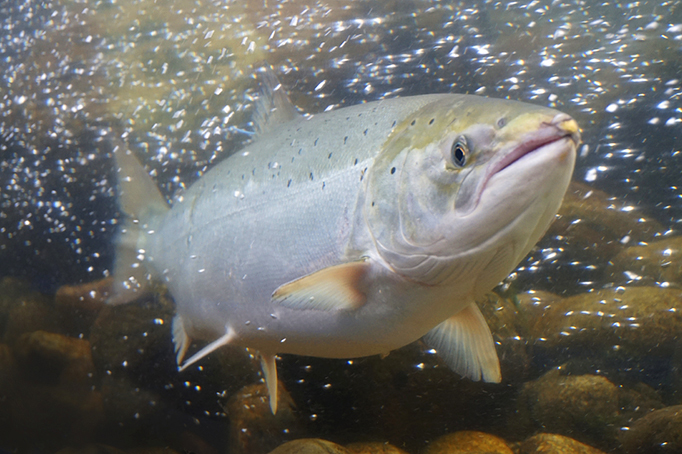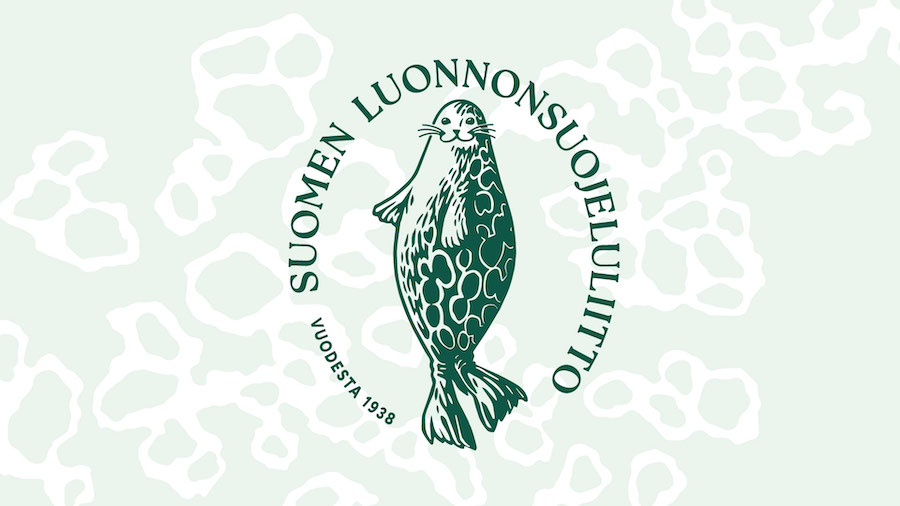Itämeren ympäristöjärjestöjen suositukset kalastuskiintiöiksi 2025
–
Luonnonsuojeluliitto on mukana Itämeren ympäristöjärjestöjen esityksissä ensi vuoden kalastuskiintiöiksi. Se toimitettiin lokakuussa jäsenmaille, jotka päättävät asiasta kalastusministerien neuvostossa. Varovaisuusperiaatetta tarvitaan, jotta kalakannat saataisiin elpymään.
Subject: NGO Recommendations on Baltic Sea Fishing Opportunities for 2025
As the 2025 European Council decision on Baltic Sea fishing quotas approaches, we would like to take this opportunity to share key recommendations from leading NGOs, emphasising the urgent need for a more precautionary approach.
The scientific advice from the International Council for the Exploration of the Sea (ICES) on fishing opportunities for 2025 paints a sobering picture of the continued decline of key fish stocks in the Baltic Sea. Both cod populations remain in collapse, herring stocks are critically low, and even sprat, once abundant, is now in steep decline with recruitment at historically low levels. This is alarming, not only for the Baltic fishing sector but also as sprat and herring are a crucial food source for many marine species, including historically important commercial stocks, such as cod and salmon. Moreover, new research shows that stock assessment estimates and recovery trajectories for overfished species tend to be overly optimistic (1).
The Baltic Sea ecosystem is under immense human-induced pressures, one of which is fishing, which is exacerbated by the climate crisis and its potential effects on fish populations. We must move beyond short-term considerations and implement long-term, ecosystem-based management to restore fish populations and safeguard biodiversity, which ultimately will be of benefit to the fishing industry.
In light of these challenges, we urge you to consider the following recommendations in the upcoming TAC negotiations:
1. Set fishing quotas well below scientific advice:
To ensure the recovery of fish stocks to sustainable levels, Baltic fishing quotas should be set well below the single-stock headline advice provided by ICES. This is especially important for species like sprat, which are vital to the Baltic Sea’s food web, as well as central herring and Gulf of Bothnia herring. For the two herring stocks, scientific assessments indicate overall low productivity, poor stock condition, including unhealthy age & size distribution, uncertain recruitment, low spawning stock biomass levels, and a likely loss in genetic diversity due to the existence of several distinct subpopulations.
2. Apply stronger precautionary safeguards:
Given the uncertainties in several stock assessments and the well-known issues of catch misreporting (2), we urge the Council to incorporate an additional precautionary buffer when setting TACs. This would reduce risks to already vulnerable stocks and promote long-term sustainability. It is imperative that the safeguards in the Baltic Multiannual Plan (MAP) (Art. 4 & 5) are applied when the fishing opportunities are set. Article 4.6 requires that agreed fishing opportunities ensure that there is less than a 5 % probability that the fish stocks fall below biomass levels that endanger their ability to replenish (called ‘Blim’). Ignoring this safeguard jeopardises the long-term sustainability of not only the fish populations but also of the fishing sector.
3. Address cod bycatch issues and misreporting:
The continued cod bycatch in the flatfish fisheries and misreporting in the industrial sprat and herring fisheries must be addressed. Not increasing the TACs for plaice and requiring the use of remote electronic monitoring in demersal fisheries to prevent illegal discards will help protect depleted cod stocks. To prevent further misreporting in the industrial sprat and herring fishery, it is imperative to increase control, enforcement, onboard monitoring and sampling of landings, whilst setting the TACs for sprat and herring stocks well below the lower end of the FMSY range.
It is clear that the current fisheries management strategies are not working in the Baltic Sea. We face a catastrophic situation where previously profitable fisheries have been closed for years, pelagic stocks are failing and coastal fish populations are disappearing, affecting the small-scale fishing sector in particular, whilst also affecting everyone living along the Baltic coast, including anglers and recreational fishers.
The EU fisheries management system must truly shift its focus from short-term profits to longterm ecosystem recovery. As already agreed under both the CFP and key environmental legislation, a move from single-species management to a precautionary ecosystem-based approach is required, particularly for sprat and herring, which are key species in the Baltic food web.
In September, the members of the PECH Committee in the European Parliament sent a strong political signal that we need to rebuild our fish populations rather than weaken the management framework3,4 when they voted against further deliberations on the proposal to remove the biological safeguards in EU multiannual management plans, including the Baltic Sea MAP (5) (6) (7).
Rebuilding fish populations is imperative to ensure future prosperity and to increase ecosystem resilience to the impacts of mounting pressures like climate change. Unless further measures in line with our recommendations are applied, the risk of continued deterioration of the Baltic Sea ecosystem is very high, with far-reaching consequences for both marine biodiversity and the fishing industry.
Enclosed you will find our detailed joint NGO recommendations (8) and we invite you to contact us, in case you require further information.
Sincerely,
Cathrine Pedersen Schirmer
On behalf of:
FishSec: Cathrine Pedersen Schirmer, Senior Fisheries Policy Officer, cathrine@fishsec.org
Coalition Clean Baltic: Andrea Cervantes, Biodiversity Officer, andrea.cervantes@ccb.se
Baltic Waters: Konrad Stralka, VD, konrad.stralka@balticwaters.org
Naturskyddsföreningen: Emelie Lundqvist, Senior Policy Advisor Oceans and Fisheries,
emelie.lundqvist@naturskyddsforeningen.se
Suomen luonnonsuojeluliitto: Tapani Veistola, Executive Director, tapani.veistola@sll.fi
Eestimaa Looduse Fond: Joonas Plaan, joonas.plaan@elfond.ee
Pasaules Dabas Fonds: Magda Jentgena, Water Programme Manager, mjentgena@pdf.lv
Lietuvos Gamtos Fondas: Edmundas Greimas, Executive Director: edmundas.g@lgf.lt
WWF Baltic Sea Programme: Justyna Zajchowska, Fisheries Lead, jzajchowska@wwf.pl
Deutsche Umwelthilfe: Isabel Seeger, Policy Advisor Marine Conservation, seeger@duh.de
Seas At Risk: Rémi Cossetti, Marine Policy Officer, rcossetti@seas-at-risk.org
Blue Marine Foundation: Jonny Hughes, Senior UK Marine Policy Manager,
jonny@bluemarinefoundation.com
ClientEarth: Jenni Grossmann, Science and Policy Advisor, jgrossmann@clientearth.org
Footnotes
1) Edgar, G. J., Bates, A. E., Krueck, N. C., Baker, S. C., Stuart-Smith, R. D., & Brown, C. J. (2024). Stock assessment models overstate sustainability of the world’s fisheries. Science, 385(6711), 860–865. https://doi.org/10.1126/science.adl6282
2) ICES (2024). Herring (Clupea harengus) in subdivisions 25–29 and 32, excluding the Gulf of Riga (central Baltic Sea). Page 3. https://doi.org/10.17895/ices.advice.25019276.v1
3) Wiesner, E. (2024, September). EU Parliament voted NO to dismantling the protection mechanism for fishing in the Baltic Sea. X (Formerly Twitter). https://x.com/emmawiesner/status/1838258481146818642
4) PECH rejects attempt to remove safeguards in management plans – FishSec
5) Hamrén, H. (n.d.). The Commission wants to remove the “5 % rule” for Baltic Sea fisheries – Stockholm University Baltic Sea Centre. https://www.su.se/stockholm-university-baltic-sea-centre/news/the-commission-wants-to-remove-the-5-rule-for-baltic-seafisheries- 1.697370
6) Joint NGO Press Release. (2023, October 24). EU ministers set quotas for Baltic herring that defy fisheries laws – Seas At Risk. https://seas-at-risk.org/press-releases/eu-ministers-set-quotas-for-baltic-herring-that-defy-fisheries-laws/
7) CCB Press Release. (2024, August 21). Environmental organizations appeal to EU court to invalidate fishing quotas due to Baltic herring stocks collapse https://www.ccb.se/environmental-organizations-appeal-to-eu-court-to-invalidate-fishing-quotas-due-to-baltic-herring-stockscollapse
8) https://www.fishsec.org/app/uploads/2024/06/240618_Joint_NGO_TAC_paper_layout_FINAL_PDFv3.pdf
Liite
Joint NGO recommendations on Baltic Sea fishing opportunities for 2025

